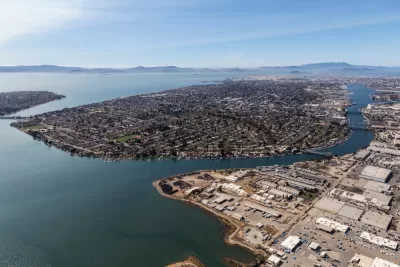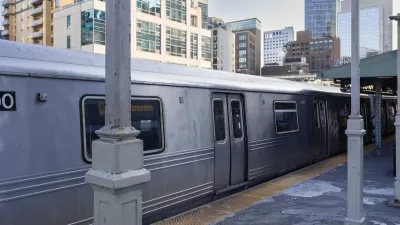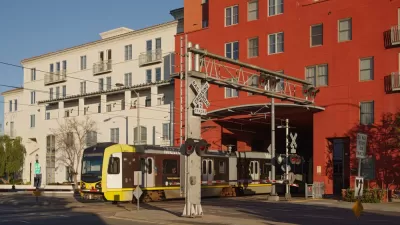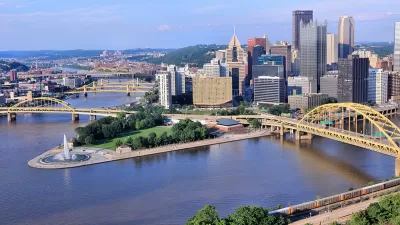The region's transit-oriented development (TOD) plan requires a significant update to achieve the density and housing goals laid out in the MTC's 30-year vision.

In a detailed article, Jonathon Kass, transportation policy manager for SPUR, lays out a case for updating the Bay Area's plan for transit-oriented development (TOD), first developed in 2005.
Kass argues that achieving the vision laid out in the Metropolitan Transportation Commission (MTC)'s Plan Bay Area 2050–a 30-year vision for reaching climate goals, addressing the housing crisis, promoting equity, and improving transportation–requires a focus on transit-oriented communities and a revision of the state's outdated TOD plan, which does not do enough to incentivize effective TOD.
Kass asserts that to overcome local opposition and address community concerns effectively, local jurisdictions will "need incentives to encourage them to plan areas around transit as equitable, sustainable population and job centers. It is MTC’s job to create policies that encourage all communities to advance these regional goals."
According to Kass, the current TOD policy "is not only failing to deliver the transit-oriented communities we need, it is doing harm" with outdated density guidelines and a lack of protections against displacement or incentives for creating jobs or other services in TOD neighborhoods.
Kass provides a list of priorities that the new policy should address. These include: setting density growth targets for existing transit stops, prioritizing commercial development to create jobs and services, mandating community stabilization policies, and eliminating parking requirements.
Read the source article for the full list of suggestions and proposed improvements to the TOD policy.
FULL STORY: The Bay Area Won’t Meet Its Goals Without a New Transit-Oriented Development Policy

Maui's Vacation Rental Debate Turns Ugly
Verbal attacks, misinformation campaigns and fistfights plague a high-stakes debate to convert thousands of vacation rentals into long-term housing.

Planetizen Federal Action Tracker
A weekly monitor of how Trump’s orders and actions are impacting planners and planning in America.

In Urban Planning, AI Prompting Could be the New Design Thinking
Creativity has long been key to great urban design. What if we see AI as our new creative partner?

How Trump's HUD Budget Proposal Would Harm Homelessness Response
Experts say the change to the HUD budget would make it more difficult to identify people who are homeless and connect them with services, and to prevent homelessness.

The Vast Potential of the Right-of-Way
One writer argues that the space between two building faces is the most important element of the built environment.

Florida Seniors Face Rising Homelessness Risk
High housing costs are pushing more seniors, many of them on a fixed income, into homelessness.
Urban Design for Planners 1: Software Tools
This six-course series explores essential urban design concepts using open source software and equips planners with the tools they need to participate fully in the urban design process.
Planning for Universal Design
Learn the tools for implementing Universal Design in planning regulations.
Gallatin County Department of Planning & Community Development
Heyer Gruel & Associates PA
JM Goldson LLC
City of Camden Redevelopment Agency
City of Astoria
Transportation Research & Education Center (TREC) at Portland State University
Jefferson Parish Government
Camden Redevelopment Agency
City of Claremont





























